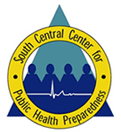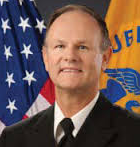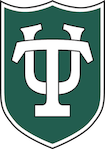
Environmental Strike Teams
Course Description:
Environmental health practitioners have important roles and must perform a number of critical functions during emergency response such as, conducting shelter assessments, testing drinking water supplies, conducting food safety inspections, and controlling disease-causing vectors. In order to improve response times, efficiency and overall organization, some state, local and federal entities have formed environmental health response teams. In this course, members of environmental health response teams describe their team’s mission, structure, funding support, and training, as well as share available resources.
Note: This course was originally delivered as a satellite broadcast.
Target Audience
Academic Faculty/Staff, Federal Government Employees, State Government Employees, Local Government Employees, Non-Government Employees and Students
Learning Objectives
- Describe the need for organized environmental health response teams
- Explain several different approaches to forming environmental health response teams
- List multiple resources to aid in developing team structure, equipment, funding, and training for environmental health response teams
Instructors:

Captain Mark D. Miller, RS, MPH
- Senior Environmental Health Officer, CDC
- National Center for Environmental Health, Environmental Health Sciences Branch
- CAPT Miller holds a Bachelor of Science in Environmental Health from East Central University in Ada, Oklahoma, and a Masters in Public Health from the University of Texas. He is a Registered Sanitarian with the state of Texas. His 22 years of environmental health experience includes, water, wastewater, food safety, injury prevention and hazardous waste. He has served in positions with private industry, Indian Health Service, Agency for Toxic Substances and Disease Registry and currently the Centers for Disease Control and Prevention. He has been involved in responses to several disease outbreaks and disasters, and was the Environmental Health Team Lead at CDC’s Emergency Operations Center during 2005 for the Indian Ocean Tsunami.
Cory Frank
- EHRT Coordinator, CHC
- Division of Environmental Health, Iowa Department of Public Health
Heather Lake-Burger, MPH, MS
- Division Manager, Preparedness Division of Environmental Health, Florida Dept of Health
Captain John D. Smart, MPH, REHS
- US Public Health Service
- Institutional Environmental Health Program Manager, Indian Health Service
Available Credit
- 2.00 Participation/CETulane Professional and Continuing Education (PaCE) awards 2.00 hour(s) of credit for completing Environmental Strike Teams
Price
Required Hardware/software
System Settings
This course is designed to work most effectively if your computer and internet connection meet certain minimal requirements. This course can be accessed using a Windows 10 PC or a Mac with High Sierra1, Mojave, or Catalina. Pop-up blockers should be disabled when viewing the course. Internet Explorer 11 (for Windows 10), or the current version of Google Chrome, Mozilla Firefox, or Apple Safari (for Windows 10 and or Mac) is required. Many of our courses require Java and JavaScript enabled.
Links to External Websites
Links to websites outside this course will open in a new window or tab. Some browsers may minimize the course window. If this occurs, maximize the course window to return to the course.
Adobe Acrobat Reader (for desktops and laptops)
Adobe Acrobat Reader is required to access some documents in this course. If you need to download a free copy of Acrobat Reader, click here.
Internet Connection Speed
A minimum download speed of 1.5 Mbps is recommended for an optimal experience, which is commonly the speed associated with a basic DSL or a cellular/satellite connection. A faster connection, such as cable or fiber service, with further enhance your online experience. A Wi-Fi connection is generally acceptable, but it is dependent upon one of the two services mentioned above. You can check your internet connection speed at http://www.speedtest.net/.

 Facebook
Facebook Twitter
Twitter LinkedIn
LinkedIn Forward
Forward